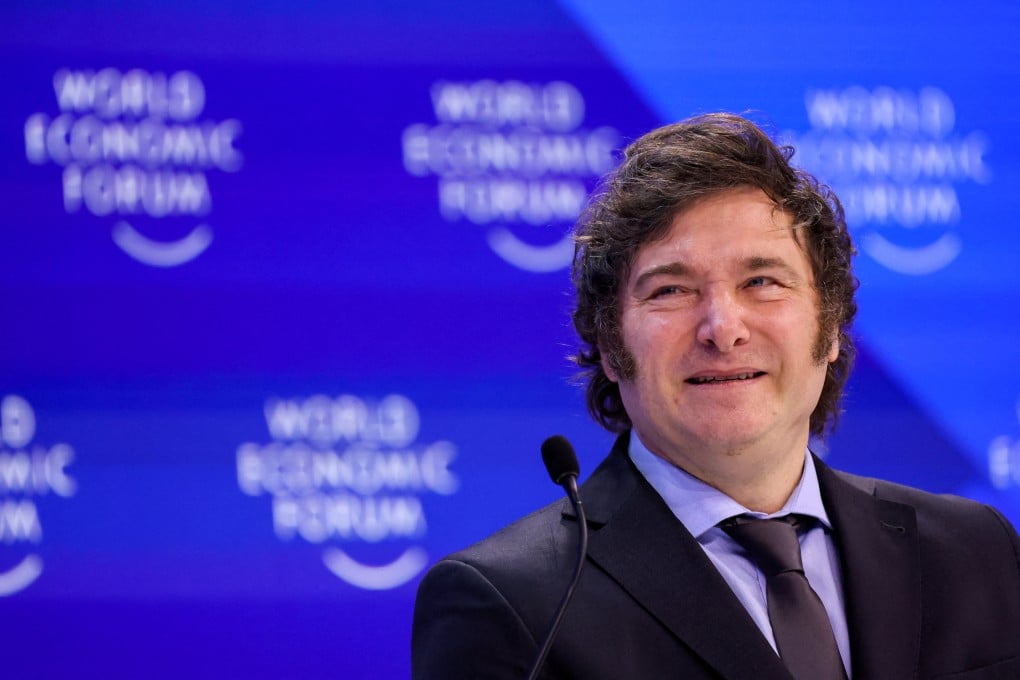My Take | Why Javier Milei’s fiery Davos speech calling on the West to reject socialism has received unexpected attention in China
- The ‘socialism or capitalism’ debate officially ended in China three decades ago, but an ideological debate has re-emerged in recent years
- Milei’s argument against ‘socialism’ has given Chinese netizens a chance to rethink a topic important to their country’s future

Speeches by foreign state leaders are rarely hot topics of discussion in China, especially when the content has no direct link to the country. But a recent address by Javier Milei in Davos, Switzerland, has made the new Argentinian president an unlikely “opinion leader” among Chinese people.
At the outset, the 20-minute speech is entirely unrelated to China – Milei warned that the “Western world is in danger” because its leaders have abandoned “the values of the West”. Still, his fiery words denouncing collectivism and trumpeting “free-enterprise capitalism” have given the Chinese public a chance to talk about related topics.
The popularity of Milei’s speech, to some extent, has more to do with China’s own social and economic context than the main message he was trying to deliver.

In China, the “socialism or capitalism” debate officially ended 32 years ago, when then paramount leader Deng Xiaoping essentially declared the issue irrelevant during his famous southern tour in 1992.
Deng wanted the country to focus on development, and ever since then, the ideological debate has faded from public discourse, as the country embraced pragmatism and concentrated on growth.

